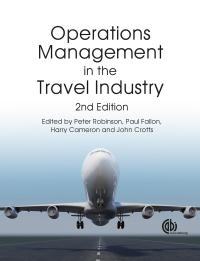2. This case study refers to Tweets that were made. Assess the importance of social media and...
Question:
2. This case study refers to Tweets that were made. Assess the importance of social media and the challenges of using it as a crisis management tool.
When storms battered the UK’s Devon coastline on 4–5 February and again on 14–15 February 2014, they caused a 100 m section of sea wall to collapse, taking the railway with it, and there were also numerous landslides across a 6 km section of Brunel’s coastal line.When Devon and Cornwall were cut off from the rest of the country, the failure highlighted the vulnerability of the south-west’s railway infrastructure. Research carried out by Visit England found that the perception was that the south-west had been cut off and was a dangerous place to visit. When news broke nationally of the rail line collapse at Dawlish, trade almost entirely dried up, because people who had heard the news in February decided to have their Easter break away from the south-west. Bookings for Easter had already begun to slow when images of the flooding in Somerset which started late in 2013 hit television screens. But when the rail line was washed away as well, this had a dramatic effect. Tourism leaders claim that the 2 month closure cost businesses in Devon and Cornwall more than £50 million. The closure of the only line connecting much of Devon and most of Cornwall with the rest of the country also exposed the lack of resilience in the rail network. In response, Visit Truro tweeted: ‘Truro is a great little city with great access with or without the trains.’ First Great Western, which operates the route, launched a consultation to accelerate the earliest improvement to the westbound highspeed train. ‘There’s a clear need for an alternative all-weather link’, said Mark Smith of Seat61.com. ‘It would not be a replacement for the current line, as the wonderful section of line through Dawlish serves important communities, but an alternative.’
Step by Step Answer:






